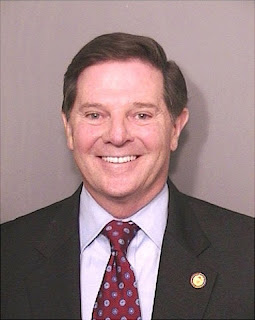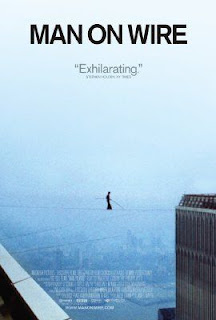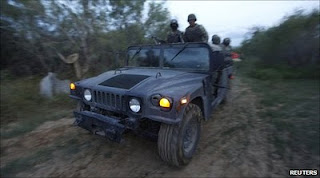
The Salman Rushdie reading at the 6th and I Historic Synagogue was not until seven PM, but the doors opened at six. Getting there at 6:54, a friend and I had to sit up on the second floor, the first already at capacity for a sold out crowd. It was a mixed group, old and young, but hardly surprisingly so; Rushdie is one of the most well-known and well-regarded English authors today, after all. Rushdie's a man of ideas, with something to say, and he did it as well in person as on the page.
His just-published
Luka and the Fire of Life is a sequel of sorts to
Haroun and the Sea of Stories, which, he explained in his opening remarks, had been written at the encouragement of a German publisher friend--- "You must a children's book write!" the man said-- as well as his son Zafar, whose middle name provided the name of the title character. Rushdie had enjoyed writing it, especially the letters he received. His favorite, from a girl then 12 or 13 years old:
"Kindly reply to this letter at once, because when I grow up I am going to be a world leader."
Luka was prompted by Rushdie's second son, Milan, who also wanted a story, and whose middle name is also protagonist's. The theme of
Haroun had been storytelling, which continues in the follow-up with the idea of the magic world and the real world, and the permeability between the two.
There is no real world without imagination, Rushdie argued. "You have to imagine a microphone before you make one, you have to imagine a chair before you can build one," he said. "Without the imaginary world, the real world could not exist."
After reading an excerpt from the beginning of the book, Rushdie talked about some of the characters, drawn from a wide span of influences. There's Nobodaddy, a translucent Angel of Death figure that look's like Luka's father, named after a devil referenced by Blake and Joyce. There's a queen of the magic world, a Sultana, referred to as the Insultana for her acid tongue; there's also a dog named Bear and a bear named Dog. Solomon's magic carpet comes into play as well.
"I've always wanted a flying carpet in a book, now I've finally got one in," Rushdie beamed.
His humanist curiosity was evident in his introduction of another excerpt, on the Land of Badly Behaved Gods.
"I've always enjoyed the old polytheisms more than the new monotheisms because the gods are so badly behaved." There was marvelous energy to his reading a passage about how Aztec gods have it worst, that they were used to receiving blood sacrifices and now receive nothing. "You've heard of vampires? Most of them are bloodthirsty, long-in-the-tooth, undead Aztec gods. Huitzilopochtli!" Rushdie declaimed.
"Tezcatlipoca! Tlahuizcalpantecuhtli! Macuilcozcacuauhtli! Itztlacoliuhqui-Ixquimilli-"
"Stop, stop," Luka begged. "No wonder people stopped worshiping them. Nobody could pronounce their names."
Rushdie describes the book as his own way of retelling Quest for Fire, an archetypal story that appears in every culture. Across the world, acquiring fire is the defining story of what makes us human.
But for Rushdie, storytelling itself is what makes us human. "Do porpoises have narrative purposes? Do elephants ele-fantasize?" he asked, only half-jokingly. He mentioned Steven Pinker's idea of a language instinct, and proposed we have a storytelling instinct. "The first thing we ask for, after food, is, 'Tell me a story.'"
Some of the best moments of the night came from the Q&A session afterward. One man asked about his writing process.
"Left to right, all the way down the page, and I fill up several pages. Poets don't have to do any of that, they have it easier. Novelists work harder." It was actually his deadline-based job in advertising when he was starting out that made him treat writing like any other job. He quoted, extempore, Hemingway's dictum to "Apply the seat of the pants to the seat of the chair."
A woman, after offering her daughter--her name, rather--for the basis of Rushdie's next kids book, asked about the impact of the fatwa on his writing, which actually was salient to
Haroun and
Luka.
"
Haroun was the first book I wrote after the Fatwa, and it's my most joyous, funniest book. It also has the first happy ending I ever wrote. I was very interested in happy endings then!"
These are stock queries, though. Rushdie's best moment was his answer to a unique and ungainly run-on sentence phrased in the form of a question, of which my mock-quote here is barely an exaggeration:
You talk about poetry, but you are a poet, you tell the truth but--you have a slant, and you are, the anti-religion, and I was wondering if you could here compose, improvise, a couplet, in which you propose your own religion, your own slant, just a couple lines in which you can give us your....
"That's a wonderful question." Rushdie deadpanned.
"The problem is that I have no religion. But that's not the problem, that's the solution, is to have no religion. So my religious couplet would be two lines, without any words." A fine performance from the man who told Christopher Hitchens that the title of
God is Not Great was exactly one word too long.
Lest one think this makes Salman Rushdie just a grumpy atheist, one ought consider his answer to the final question asked. A Kashmiri woman asked how, when writing
Shalimar the Clown, he could include so many accurate nuances to life in Kashmir without living there. His response was a perfect mixture of wisdom, wit, and warmth.
Rushdie cheekily mentioned "this thing called research," and then spoke of his friend Nuruddin Farah, who has lived in exiled from his native Somalia, but has set his every novel there. When asked this same question Farah answered, "I carry it here," Rushdie explained, thumping his breast.
He went on, "Hemingway was able to write about America in France, in Paris, and Joyce wrote the best book ever written on Dublin from Trieste. Although some would disagree." Rushdie then adopted the gruff Irish accent of a
Ulysses-hater:
"Thot's not Dublin.... Thot man, thot... pore-NAW-gruffer. BLAS-feemur...."
When the audience's laughter subsided, Rushdie said simply, "I'm proud that my books feel true to people that read them. How I do it, is a secret."
















